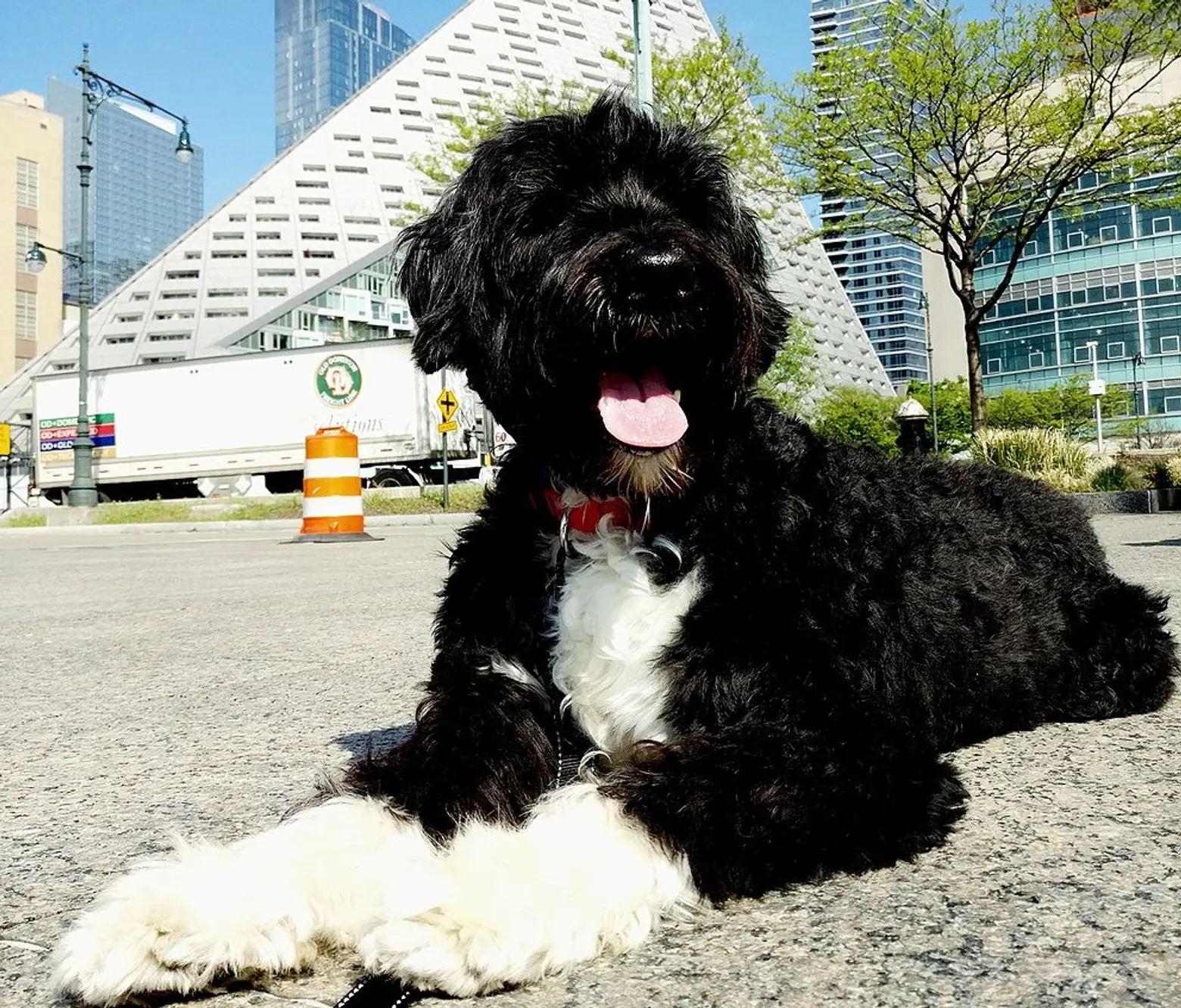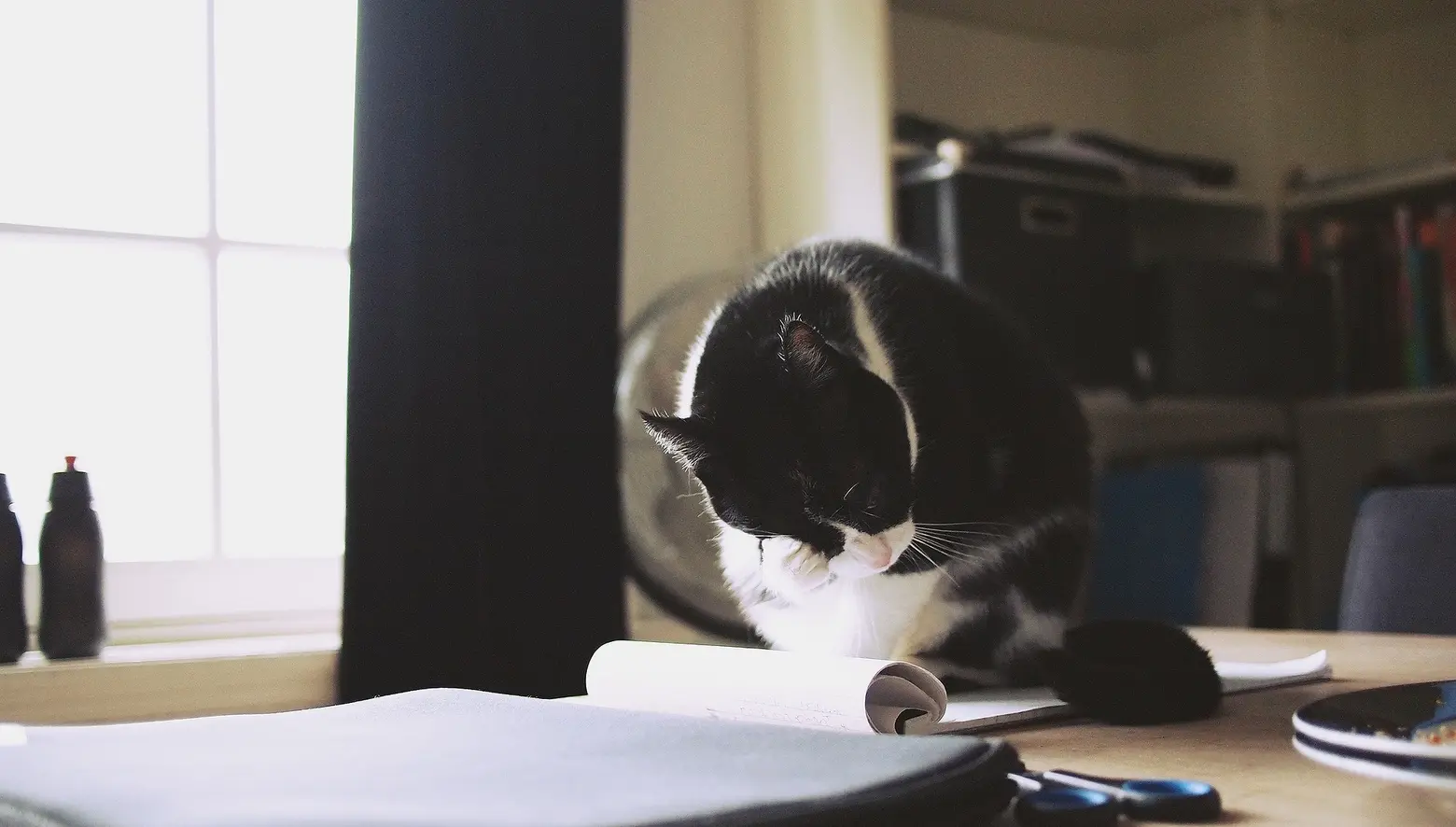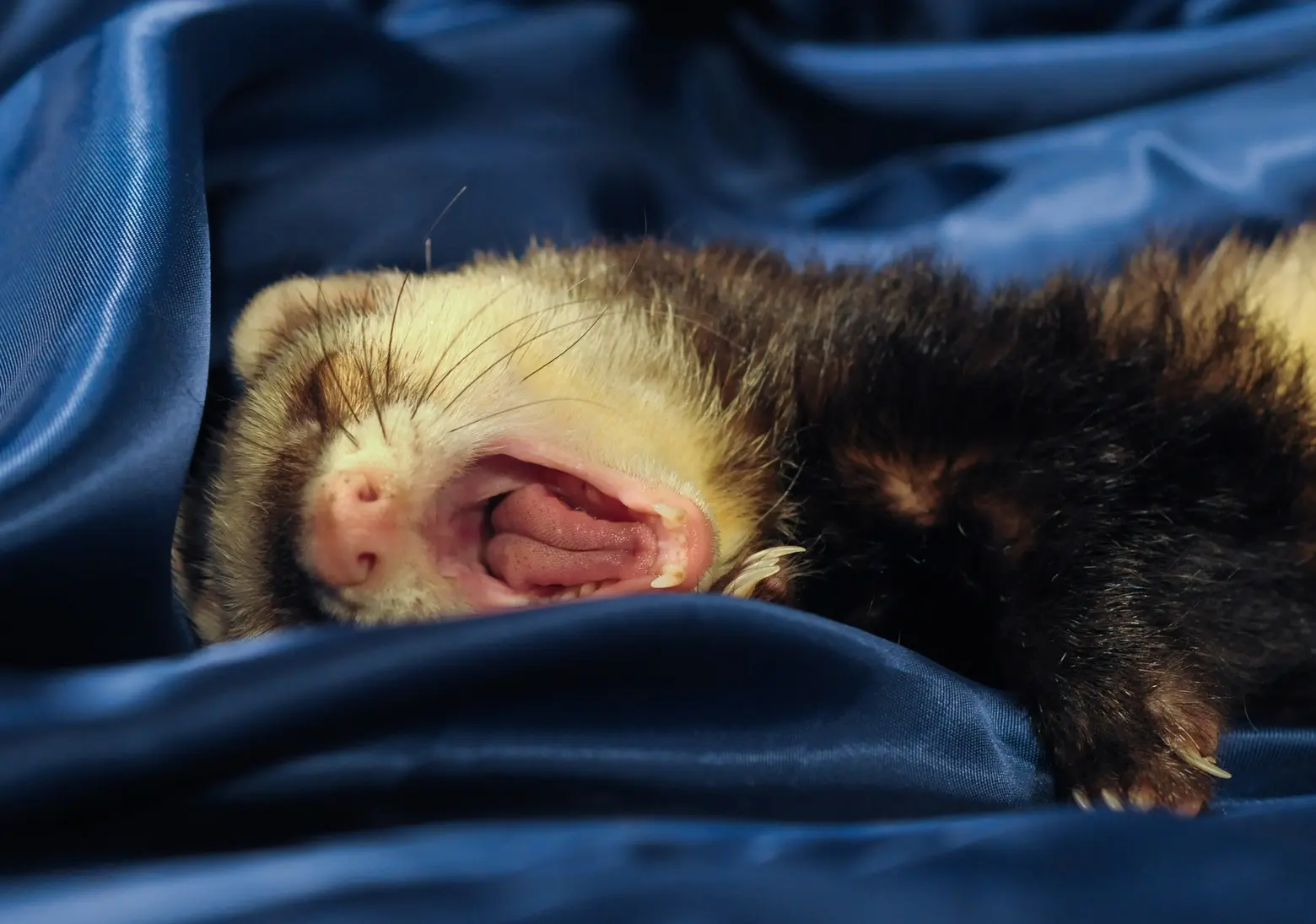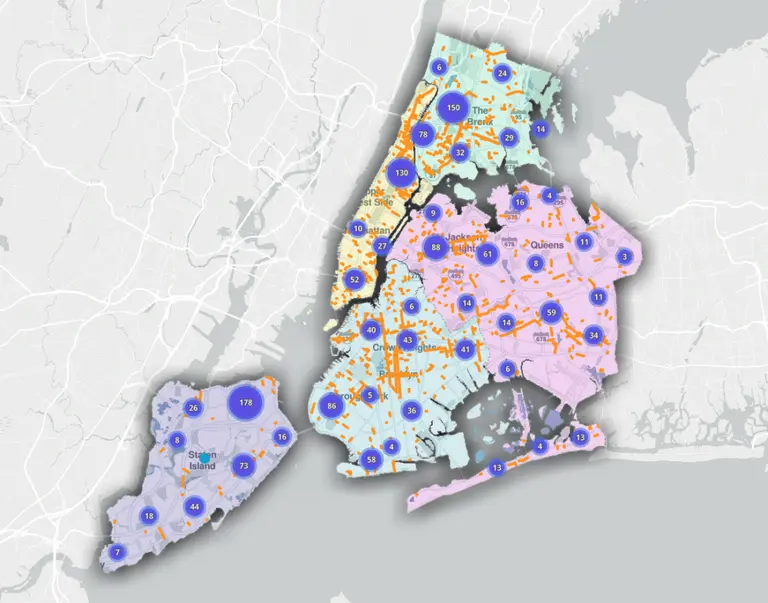NYC pet laws and the legal loophole that may let your furry friend stay despite a ‘no pets’ rule

Image: Wikimedia Commons
As long as Fido’s not a ferret, of course. You may not know this, but you could be able to keep a pet in a “no pets” apartment–legally. New York City’s Pet Law, established in 1983, may actually override your landlord’s kibosh on your kitty or pup, as long as certain criteria are met. Your pet can’t be one of the many, many critters on the city’s “banned” list, which includes the aforementioned ferrets, pot-bellied pigs, most snakes, hedgehogs, and squirrels.

Image via Pixabay.
The Pet Law addressing landlords’ pet bans in apartment buildings was passed after disputes began to arise between landlords and tenants in which landlords hadn’t enforced the ban on tenants’ cats and dogs for years, then suddenly tried to evict the same tenants–usually for non-pet-related reasons–wanting to hike the rent when property values skyrocketed, for example.
According to advocacy group Mobilization for Justice, a landlord has waived his right to enforce a no-pet clause if “the tenant has kept a pet ‘openly’ and ‘notoriously,’ the landlord or his agent has known or should have known of the pet for three months or more, and the landlord does not begin a court case to enforce the no-pet clause.” In other words, the pet owner must not only keep the pet openly, but the landlord must know–or should know, for example if the super or doorman is aware–of the pet’s existence for the three-month period. The landlord gets a chance to do something about the situation, and if he or she does nothing, the Pet Law sees it as a de facto acceptance of the tenant’s pet.
The Pet Law applies to renters living in buildings with three or more apartments and to the owners of cooperative apartments in all five boroughs; it applies to condominium owners in Brooklyn, Queens and Staten Island but not to condo owners in Manhattan and the Bronx. The Pet Law doesn’t apply on buildings owned by the New York City Housing Authority (NYCHA) which has its own rules on the subject.
The law doesn’t protect dangerous or “nuisance” animals that disrupt the peace and quiet of other residents including “loud barking, aggressive behavior, noxious odors, urinating or defecating in public areas of the building, and having more animals than you can care for.” A mild or one-time nuisance, though, still might not be grounds for eviction. The behavior must be repeated and ongoing.

We know, it’s not fair. Image via Pixabay
The law also does not protect farm animals or exotics. The pet in question can’t be on the city’s banned list–which unfortunately extends to just about every creature under the sun that isn’t a cat, dog, hamster or fish, with a few notable exceptions. New York City, presumably because forced proximity makes us immediate neighbors with your snake, tiger, alligator or zebra, is far more stringent about forbidden wildlife than the surrounding state.
The basics are as follows:
Prohibited animals include any animals specified by the Department of Health and Mental Hygiene; and any native or exotic wildlife whose possession or sale is prohibited because they are designated as protected or endangered pursuant to any federal, state or local law, regulation, or rule.
The list of prohibited wild animals…identifies animals which cannot be sold, given, received, kept, harbored or exhibited in New York City, unless they are in a zoological park or aquarium operated by the Department of Parks, the Wildlife Conservation Society, the Staten Island Zoological Society; a scientific laboratory operating with valid permits and licenses from the relevant City, State and Federal authorities; a circus or native wildlife rehabilitator licensed by federal or state agencies; or a location which has received a Wild Animal Exhibition Permit from the Department of Health and Mental Hygiene, available on the Health Department’s Permits website, to exhibit or use such animals, and which has protective devices which are adequate to prevent such animal from escaping or injuring the public.
Animals including, but not limited to, domesticated dogs and cats, gerbils, hamsters, guinea pigs, domesticated rabbits and fowl or small birds such as parakeets, parrots, canaries and finches may be kept, possessed, harbored or sold in the City of New York provided that possession of the animal is not otherwise prohibited by law, including federal, state and local laws regulating domestic animals and livestock or protecting wildlife and endangered species.
The exhaustive list of banned animals can be found here.

This fennec fox is an approved NYC pet. Image, Jean via Flickr.
What about those exceptions? The most notable one is the super-adorable but definitely exotic fennec fox. Other foxes are most definitely banned, but fennecs have a dedicated group of fans that successfully lobbied for their foxy friend to become an exception on the grounds that they be considered “companion animals.” There are very few states or cities in which owning one is against the law. In New York City, it’s also ok to keep a bearded dragon a boa constrictor (though other, larger constrictor snakes like pythons are banned), or a king or corn snake. Chickens are allowed, but roosters are not; nor are ducks, geese or turkeys.

This little pig, not so much. Image via Pixabay.
However, once you’re outside New York City limits, hedgehogs, porcupines, kinkajous, non-native squirrels and, yes, ferrets, are all approved companions. The beloved potbellied pigs that pop up in the news from time to time are among the only-banned-in-the-boroughs pets which still obviously persist despite being critter-non-grata, waddling about under the radar in a shadow community of sorts.
And there have been attempts to abolish the bans: Senator Tony Avella made news last year for his fight on behalf of pet pig in Staten Island that was about to be evicted after being ratted out by neighbors; his efforts came to naught as he didn’t receive enough legislative support according to Gothamist. Mayor Bill de Blasio briefly championed the beleaguered ferret, but city health officials upheld the ferret ban in a vote.

Left: Image by David Shankbone via wikimedia commons; Right: Image via Pixabay.
Regardless of what sort of pet you’re bold enough to own, you’ll have to leave the nest sometime. If you want to take your furry or scaly friend along, the guidelines to be followed in the city’s taxis and subways are much less stringent. The New York Times asked the MTA about its four-legged passenger policies. According to an MTA spokesman, the rules say that “No person may bring any animal on or into any conveyance or facility unless enclosed in a container and carried in a manner which would not annoy other passengers.” Service animals and law enforcement dogs are exempt, but emotional support animals aren’t.
What about taxis? According to the New York City Taxi and Limousine Commission, if it’s not a service animal, your pet can be denied a ride if it “is not properly secured in a suitable container,” but that many cab drivers won’t refuse to give you a lift even if your hound is out of bounds.
RELATED:
- Tips for Keeping Pets Happy and Healthy in an Apartment
- From the ‘Seinfeld Law’ to Doggie Interviews, The Craziest Co-Op Board Stories Around
- New Yorker Spotlight: BriAnne Wills, Creator of the Latest Internet Sensation ‘Girls and Their Cats’
- New Yorker Spotlight: Sarah Brasky of Foster Dogs NYC on Helping Pups Find Fur-Ever Homes




























